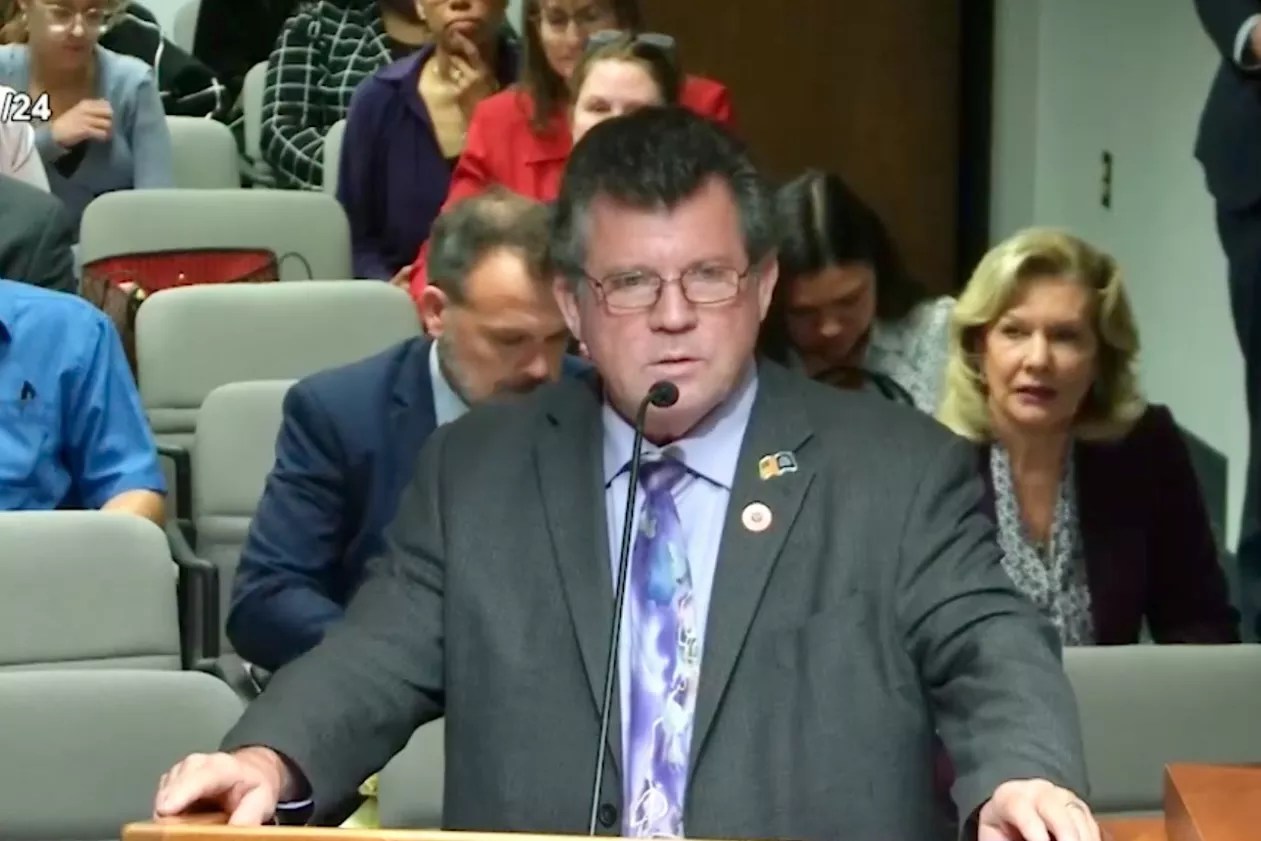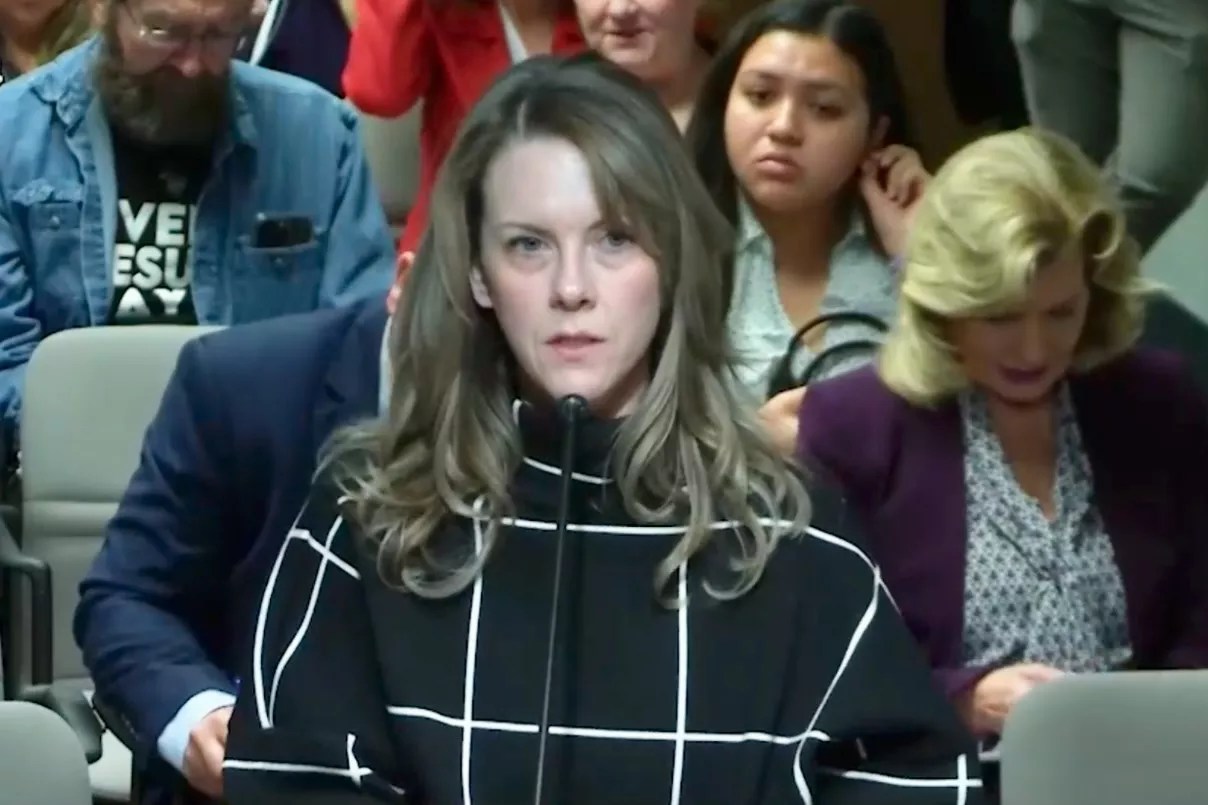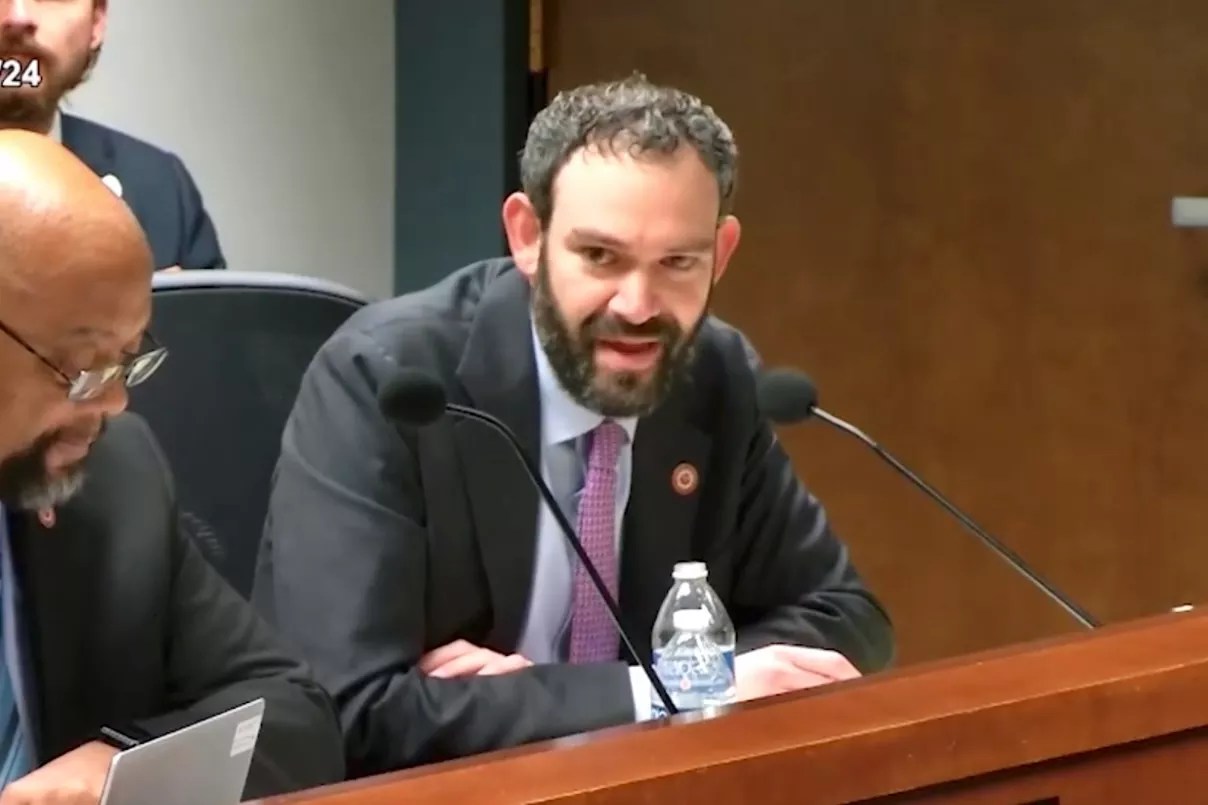
ACTV

Audio By Carbonatix
A controversial internet age-verification bill passed out of an Arizona House committee on Jan. 29, despite warnings from critics that the legislation is unconstitutional and will not prevent minors from accessing online porn.
Sponsored by Rep. Tim Dunn, a Republican from Yuma, House Bill 2586 requires websites with material deemed “harmful to minors” to verify that their visitors are 18 or older. Any website failing to comply could be sued for damages “that result from a minor accessing the material.”
The vote on the bill from the Republican-dominated House Judiciary Committee was hardly a ringing endorsement. Four Republicans voted for it. The three Democrats on the committee voted against it. Two Republicans voted “present.”
On Feb. 5, the House Rules Committee approved the bill, 9-0. It has yet to be scheduled for a floor vote.
A similar bill, SB 1503, was considered by the House last year. It failed to pass, 31-26.
Reading HB 2586, it’s easy to see why even some Republican legislators have qualms about it.
The proposed law would apply if one-third or more of a website’s total content is “harmful to minors,” a category that covers a broad swath of written, spoken and visual communication. The bill defines “harmful to minors” as “descriptions of actual, simulated or animated” displays or depictions of a variety of sex acts and body parts.
The sex acts and body parts include sexual intercourse, masturbation, sodomy, flagellation, oral copulation, “excretory functions,” pubic hair, anuses, vulvas, genitals or a “female breast’s nipple.”
Male nips are apparently A-OK.
Nor can the website describe or depict “exhibitions or any other sexual act.” The word “exhibitions” is undefined.
Also verboten is the description of “touching, caressing or fondling of nipples, breasts, buttocks or genitals.” Which means no images or written descriptions of women breastfeeding their children.
The bill dictates that the forbidden content should lack “serious literary, artistic, political or scientific value for minors.” All of which is wide open to interpretation.
Newspapers, radio, TV and journalists in general are exempt from the bill’s dictates. So, interestingly, are internet service providers like Google or GoDaddy and social media platforms such as Facebook, Reddit and Twitter.

Marilyn Rodriguez, a lobbyist for the ACLU of Arizona, criticized the legislation as an affront to the First Amendment rights of adults.
ACTV
‘This bill does very little to protect children’
Before the vote, Mike Stabile, communications director for the California-based Free Speech Coalition, which represents the adult entertainment industry, told the committee the social media exemption was one reason the legislation would fail to have its desired effect.
“The vast majority of adult content on the web is not affected by this bill,” Stabile said.
In addition to exempting social media platforms, where most children encounter adult content, he said, the bill would not affect overseas sites, which “is never going to reply to a civil suit in Arizona.”
“You’re creating low, very ineffective guardrails, and at the same time raising the issue of federal challenges,” he said.
Stabile said FSC opposes the legislation and has filed federal complaints in other states challenging similar laws. At least eight states have passed statutes mandating age verification for adult sites, according to FSC.
Stabile also gave the committee members a lesson in how Virtual Private Networks allow kids to do an end run around age verification. It’s as easy as downloading a VPN app.
“VPNs allow you to appear that you are in another state or another country,” he said. “These are free devices that are allowed online. Forty percent of minors already use VPNs.”
Which is why FSC supports parents using internet filters that they can download online and control themselves, he said.
Rep. Analise Ortiz, a Democrat who represents Maryvale and Glendale, said that when she was 12, her school library blocked MySpace, but even at that age, she knew how to use a VPN to navigate around it. She asked Stabile if the bill did anything to protect children.
“This bill does very little to protect children, and it has really significant downsides for adults trying to access First Amendment-protected content,” Stabile said.
Marilyn Rodriguez, a lobbyist for the ACLU of Arizona, said the organization opposed the bill for the same reasons it opposed SB 1503 in 2023.
“Multiple Supreme Court cases have held that attempts to block minors’ access to sensitive material on the internet that infringes on adults’ First Amendment rights violate the Constitution,” she said.
Proponents of the bill at the hearing on Jan. 31 largely framed the legislation as an attempt to shield children from online pornography.
“The bottom line is we should be actively protecting our children from harmful content in this growing age of technology,” Dunn said when he introduced the bill to the committee.
Other pro-HB 2586 speakers claimed porn was more addicting than even the hardest illegal drugs, statements that are demonstrably wrong.

State Rep. Alex Kolodin expressed concerns about whether age-verification data would be harvested by the federal government.
ACTV
Bill could result in blanket ban on adult websites
Rep. Alex Kolodin, a Republican from Scottsdale best known for representing the CyberNinjas, struck a libertarian note when he objected to a part of the bill that allows websites to verify age and identity through a service “regularly used by the government.”
The bill forbids age-verification companies from retaining identifying information after access is granted to a particular website in question, but Kolodin expressed concern that the government would keep that data.
Peter Gentala, an attorney representing the National Center on Sexual Exploitation, an anti-porn group formerly known as Morality in Media, responded to Kolodin’s concerns by comparing the requirements of the bill to purchasing a bottle of wine online.
Interestingly, Gentala admitted that in states that have passed age-verification laws, the result is a blanket ban, with sites like PornHub blocking all IP addresses from states where the legislation is in effect.
All the same, Kolodin wasn’t buying it.
“I know that the government is not good, and so any bill that asks for me to authorize the government to keep lists that it can use against its political enemies . . . I have a special problem with it,” he said.
Kolodin voted “present” and said if that section of the bill was not changed, he’d be a no-vote on the House floor. Rep. David Marshal, a Republican from Snowflake, also voted “present.”
Sen. Wendy Rogers, a Flagstaff Republican, is sponsoring a similar bill in the state Senate. SB 1125 passed out of the Senate Transportation, Technology and Missing Children Committee on Jan. 29 with a similarly unenthusiastic do-pass recommendation – three ayes, two nays and two not voting.
On Feb. 5, the bill passed out of the Senate Rules Committee on a 4-3 vote. As with HB 2586, the Senate bill has not been scheduled for a floor vote.
Rogers also sponsored 2023’s failed age verification bill, SB 1503. At the time, she called pornography “a scourge that’s affecting impressionable minds.”
But later that same year, Rogers got into hot water when she reportedly shared X-rated pics of Hunter Biden on X, which allows minors 13 to 18 to sign up. She later deleted the post, which a fellow Republican legislator called “a mistake.”